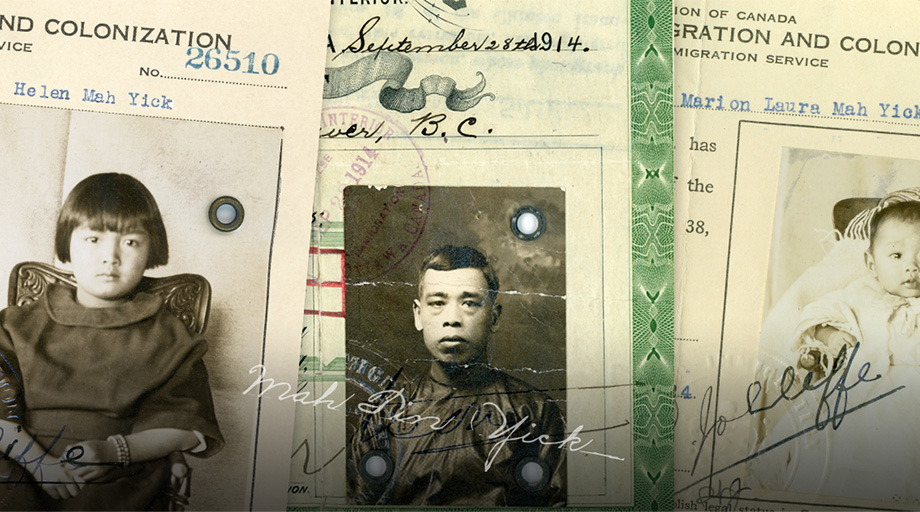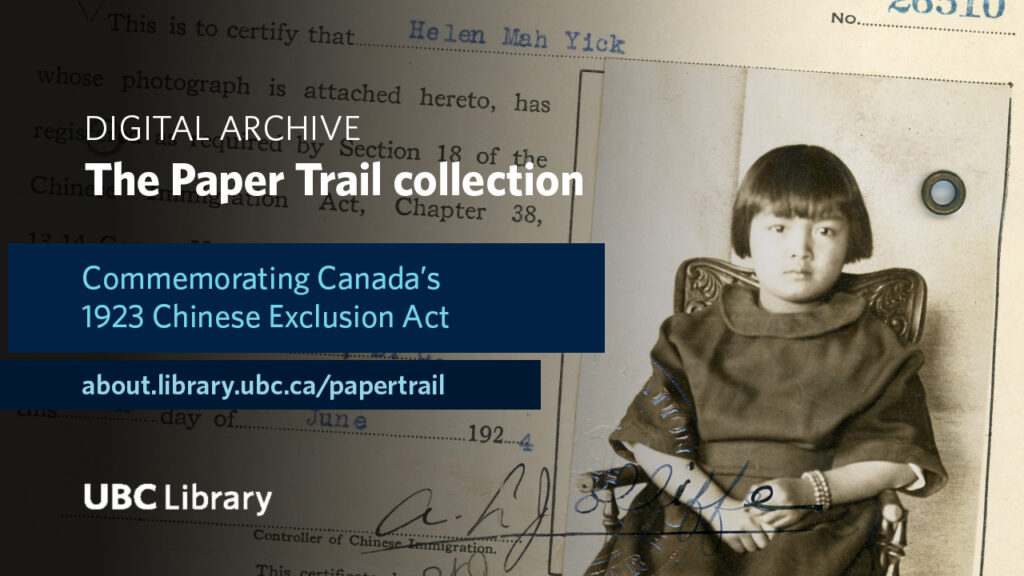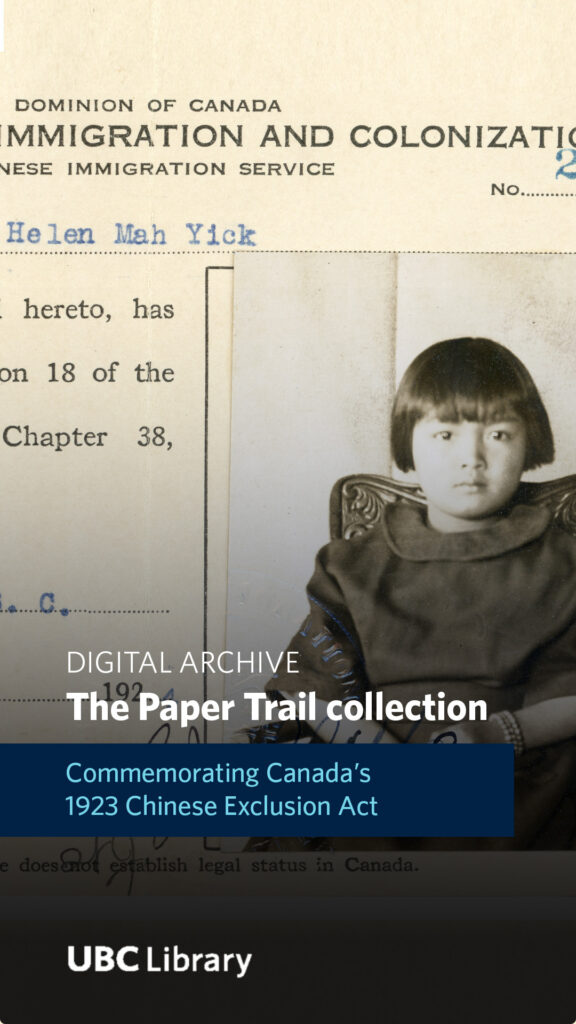This post was originally published by the University of British Columbia Library.

A national exhibition called “The Paper Trail to the 1923 Chinese Exclusion Act” was curated by Catherine Clement, and launched on July 1, 2023 at the Chinese Canadian Museum of British Columbia, which marked 100 years since the passing of the 1923 Chinese Immigration Act in Canada (more commonly known as the Chinese Exclusion Act). This unique piece of immigration law launched the darkest and most despairing period in Chinese Canadian history. It marked the only time in Canadian history that one group was barred from entry based solely on their country of origin.
To research the legislation, Clement collected scans of over 500 original C.I. certificates from families across Canada. Each record includes high quality images of the C.I. certificate’s front and back matter, along with a biographical sketch of the individual based on memories provided by their children and grandchildren.
UBC Library Rare Books and Special Collections (RBSC) partnered with the Paper Trail team to host a digital archival collection of the C.I. certificates. This accessible, online archive enables future historians, researchers, students and family members to study these historical documents for educational purposes.
Campaign Approach
The campaign I planned and carried out was focused on the digital archive, and UBC Lirbary’s role as an institutional partner of The Paper Trail project to launch, promote and steward the digital archive, as part of a much larger, community-wide commemorative effort.
Planning for this campaign began several months before launch, starting with a kickoff meeting with archivists from RBSC, the Paper Trail Project and myself. Campaign deliverables included a blog post, social media promotion on library channels, image assets and a full communications toolkit, digital signage on library screens, and a cross-promotional plan.
UBC Library collaborates with The Paper Trail project to launch new digital archive
UBC Library Rare Books and Special Collections (RBSC), in partnership with The Paper Trail project team, has launched a digital archival collection of identity papers known as Chinese Immigration (C.I.) certificates created through Canada’s Chinese Immigration Act.
The Act was in force from 1885 to 1947. It introduced and tightened immigration restrictions through the Chinese head tax and its increasing sum, and culminated in the Chinese Immigration Act of 1923 that banned all further immigration. Passed into law on July 1st Dominion Day that year, the amendment is commonly called the Chinese Exclusion Act. It was effective in stemming Chinese immigration. It also resulted in cutting off the tens of thousands of Chinese residents already living in Canada from their families back in China. The law was finally repealed in 1947 after almost a quarter century.
Led by Catherine Clement, a community historian and curator based in Vancouver’s Chinatown, The Paper Trail project seeks to commemorate this era of exclusion that was “the darkest and most despairing period in Chinese Canadian history.” Families have been invited to share scans of their C.I. certificates and details about the individuals who once owned them, which make up the new digital archive.
Read the full story on the UBC Library website.
Communications Toolkit

